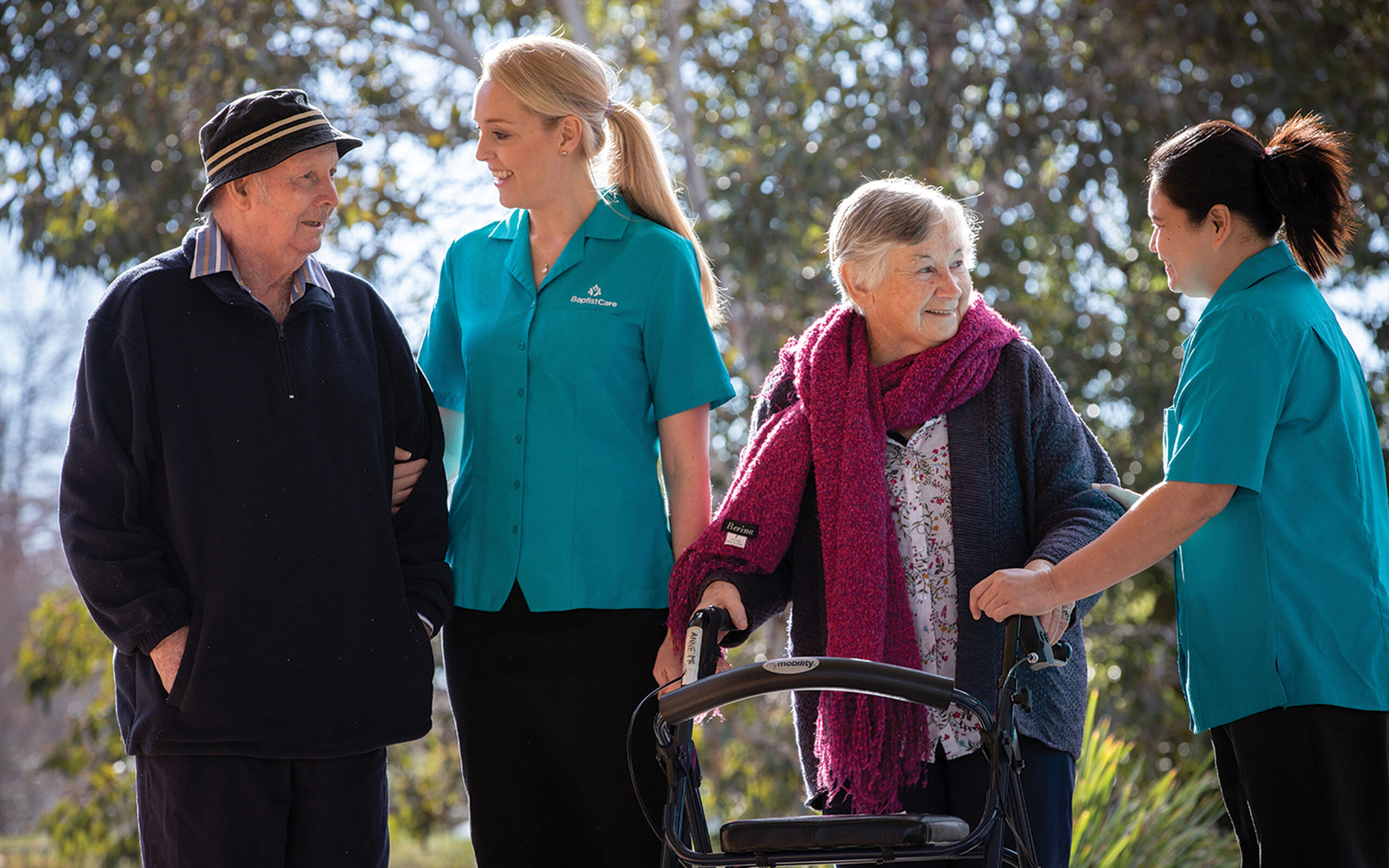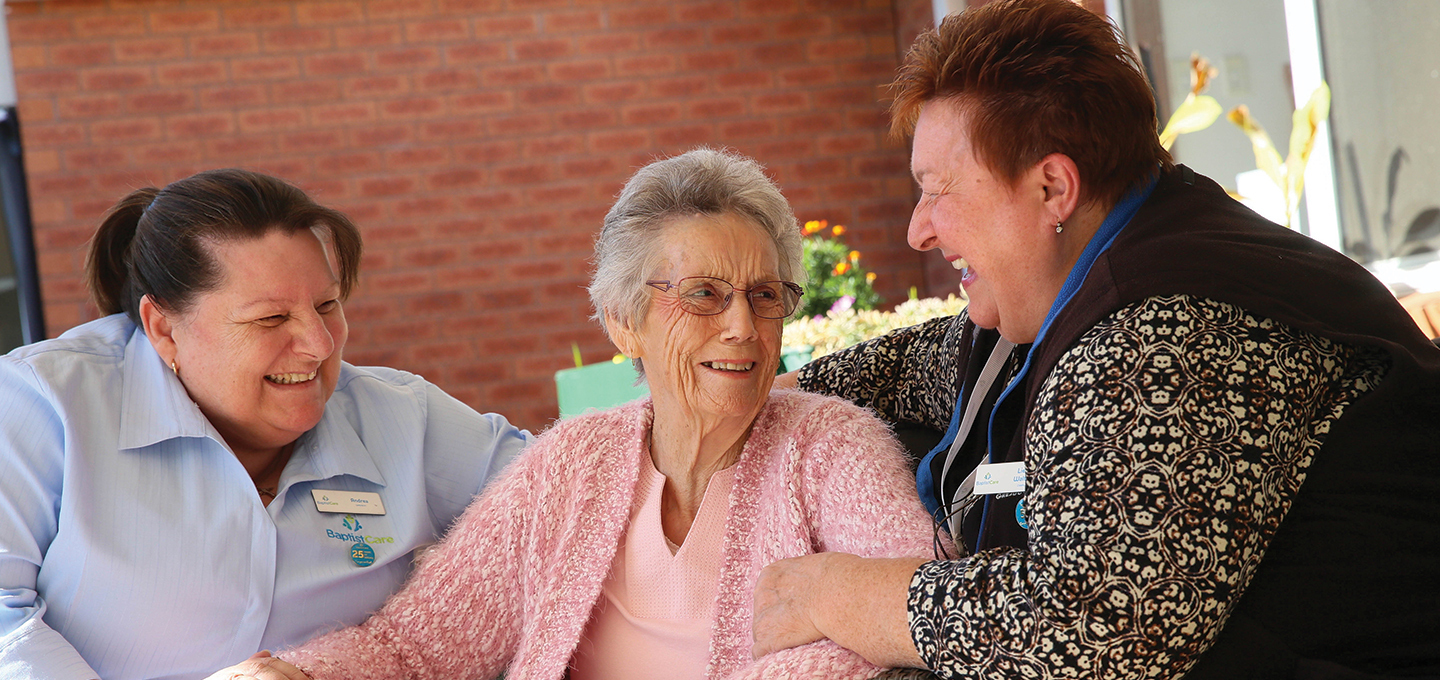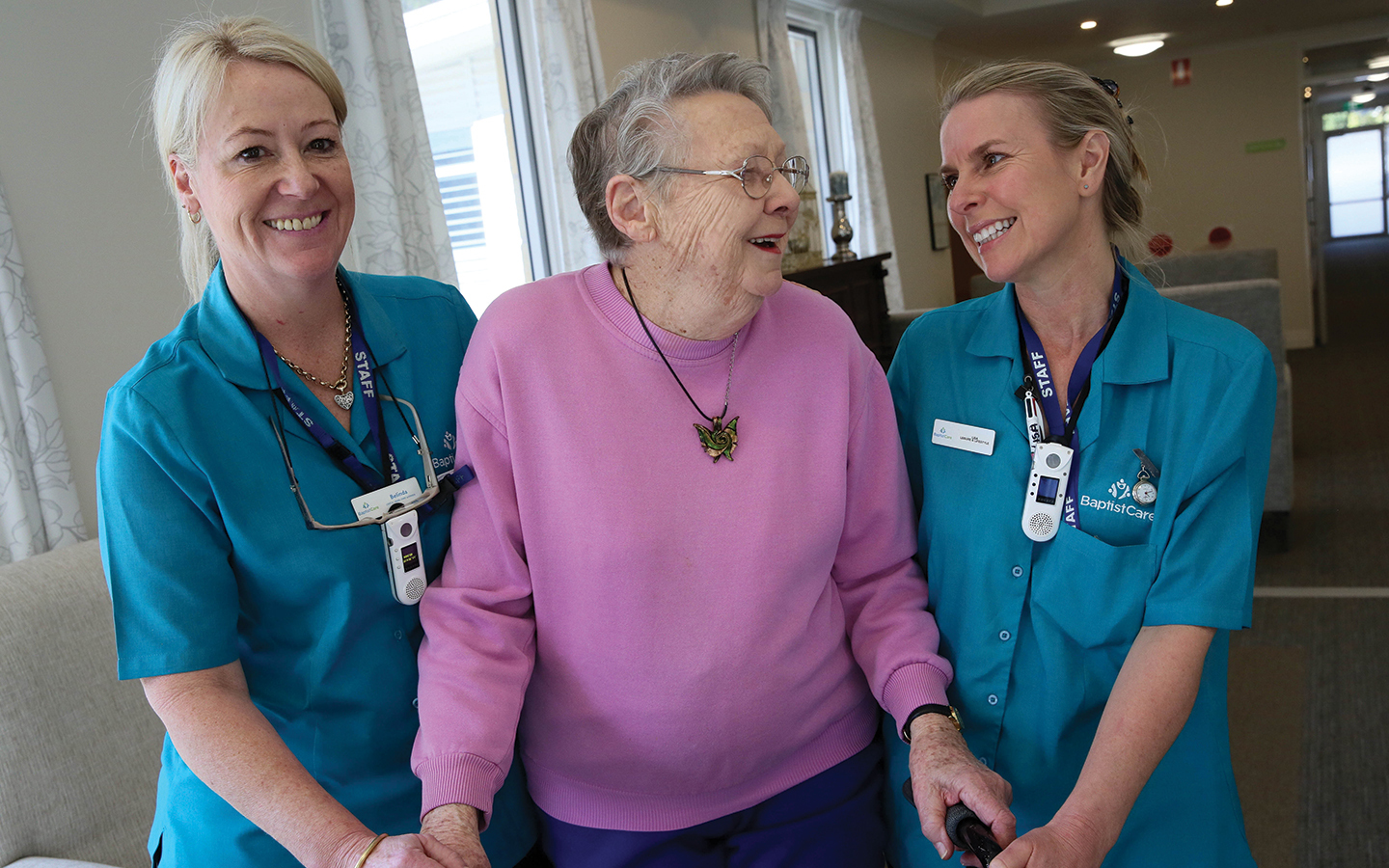Ways to minimise a fall and why it’s important
Anyone can be susceptible to a fall but falls create a major health concern for people aged 65 and older. With one in three Australians experiencing a fall in the last year, it’s the leading number of unintentional injury for older persons nationwide.
Scroll to Explore

18 September 2022
Stories
| Aged Care Homes
Ways to minimise a fall and why it’s important
Falls prevention and awareness plays a significant role across our BaptistCare residential aged care homes in NSW and ACT every week of the year. However, this week is Falls Prevention Week 2022 across Australia (September 18-24). The following information is to raise awareness of the prevalence and impact that falls can have on the elderly and give you tips around the home that can make you and your loved ones safer.
Did you know nearly 1 in 3 older Australians have experienced a fall in the past 12 months?*
Anyone can be susceptible to a fall but falls create a major health concern for people aged 65 and older. With one in three Australians experiencing a fall in the last year, it’s the leading number of unintentional injury for older persons nationwide. In this age bracket, one in five falls required hospitalisation.
Falls often have a bigger impact on a person’s wellbeing than people tend to realise. It’s not usually an isolated event. An initial injury from a fall can often start a detrimental cycle. A person may lose confidence in their body, become less active and minimise their movements. This in turn creates further risk of falls, as well as physical decline. With every fall we tend to become frailer. Each time it takes longer for our body to repair the damage, and increased hospital stays create more health concerns, on top of the requirement for ongoing rehabilitation.

Why do elderly people fall?
A fall doesn’t necessarily mean a lack of concentration or lapse in judgement. Where people may say they were ‘clumsy’, there can be physical reasons for falls, this includes:
Body changes as we age
We all experience changes as we age as part of the normal aging process. You may notice feeling unsteady and perhaps balance concerns. At times, we feel our muscles are getting weaker, eyesight poorer and we experience slower reaction times. It is important to get any changes to your health reviewed by a health professional to ensure it’s not a greater concern or evolving health issue. Also, in getting your hearing and eyesight checked regularly, you can access the personal tools and equipment to adapt to the changes of aging.
It’s important to note that these changes do affect the way we move, and at times they can cause a fall.
Dangers in and around the home
According to the Australian Government’s HealthDirect, nearly two out of three falls happen in and around the home. It is recommended that common hazards are addressed so falls can be avoided. These include:
- low and poor lighting
- unsafe footwear including slippers, socks, or narrow heels
- slippery surfaces and spills
- trip hazards such as mats or rugs, clutter and electrical cords
- steps, ladders and uneven surfaces
How can falls be prevented?
There are a number of ways in personal care and practical approaches that can help you protect yourself from falls in your home. It all starts with an awareness of your own body.
Ask yourself:
- Do you take regular medications or sleeping tablets that cause sedation?
- Do you have difficulty in getting up from chairs?
- Are your feet swollen or painful at the end of a long day?
- Do you often have to rush to the toilet?
- Do you have to frequent the toilet in the middle of the night?
- Do you have a history of falls?
- Do you have health conditions such as heart problems, vertigo or blood pressure issues?
- Do you have stiff joints or pain?
If you’ve answered ‘yes’ to any of the above you may be at greater risk of a fall, and it’s important to take a preventative approach by minimising risk in your environment.
You can minimise the risk of a fall in the following ways:
- Exercise and move your body every day (30 minute minimum)
- Fix any hazards in your home and garden
- Use guard rails and properly installed fittings in risk-prone places, like the bathroom and shower
- Use tools and equipment to help mobilise and steady yourself, like shower seats, toileting aids and walking aids
- Avoid steps and ladders
- Talk to your doctor about any of the symptoms on the list
- Talk to your doctor if you have had two or more falls in the past
- Get your glasses checked to ensure you have adequate vision
- Get your medication checked to ensure the combination of medications aren’t causing dizziness or adverse reactions when taken together.

We prioritise fall prevention at our BaptistCare Aged Care Homes
In our BaptistCare aged care facilities, we take great care in following fall prevention protocols outlined by the National Safety and Quality Health Service (NHQHS) Standards as part of our quality management process.
Whilst our purpose-built facilities already include the fixtures and considerations around aging, on entering the aged care home we conduct a risk assessment and adjust the environment to meet your unique profile. We can also help acquire equipment for your use to reduce the risk of falls.
These steps include:
- Adjusting chair and bed heights for your individual needs
- Using lighting that is even and activated by sensors, particularly at night
- Providing slip-resistant surfaces
- Acquiring well-maintained walking aids and wheelchairs
- Reducing clutter and trip hazards for residents
- Cleaning up spills promptly
- Providing stable furniture for handholds
- Ensuring effective brakes on beds, wheelchairs and commodes
- Making it easier to move freely from one place to another
- Placing call bells within reach[1] or using pendant alert devices
At BaptistCare Residential Aged Care Homes, we create strong and caring communities that focus on improving our resident’s personal wellbeing and quality of life. We have qualified health professionals who can assess, prescribe and deliver individual and group programs to maintain and/or improve health thus reducing your falls risk and promote safety. If you no longer feel safe at home due to falls or you feel you need extra care to prevent falls and injuries, click through to explore your nearest BaptistCare Aged Care Home.
Our well-trained staff can support a broad range of care needs to suit each of our residents: from those who are still fairly independent, to the ones with complex needs such as people living with dementia, right through to end of life care. We are here to be that extra support families need in ensuring their loved ones are well cared for and feel safe. Contact BaptistCare to find out how we can help you.
Click the link below to learn more about BaptistCare's
Residential Aged Care | MyTeam | Understanding Aged Care | Financial Guide | Find a centre
Make an Enquiry
If you would like to know more, please contact us on 1300 275 227 or complete the enquiry form and one of our customer representatives will be in touch.
* https://www.healthdirect.gov.au/falls
[1] NHQHS Standards